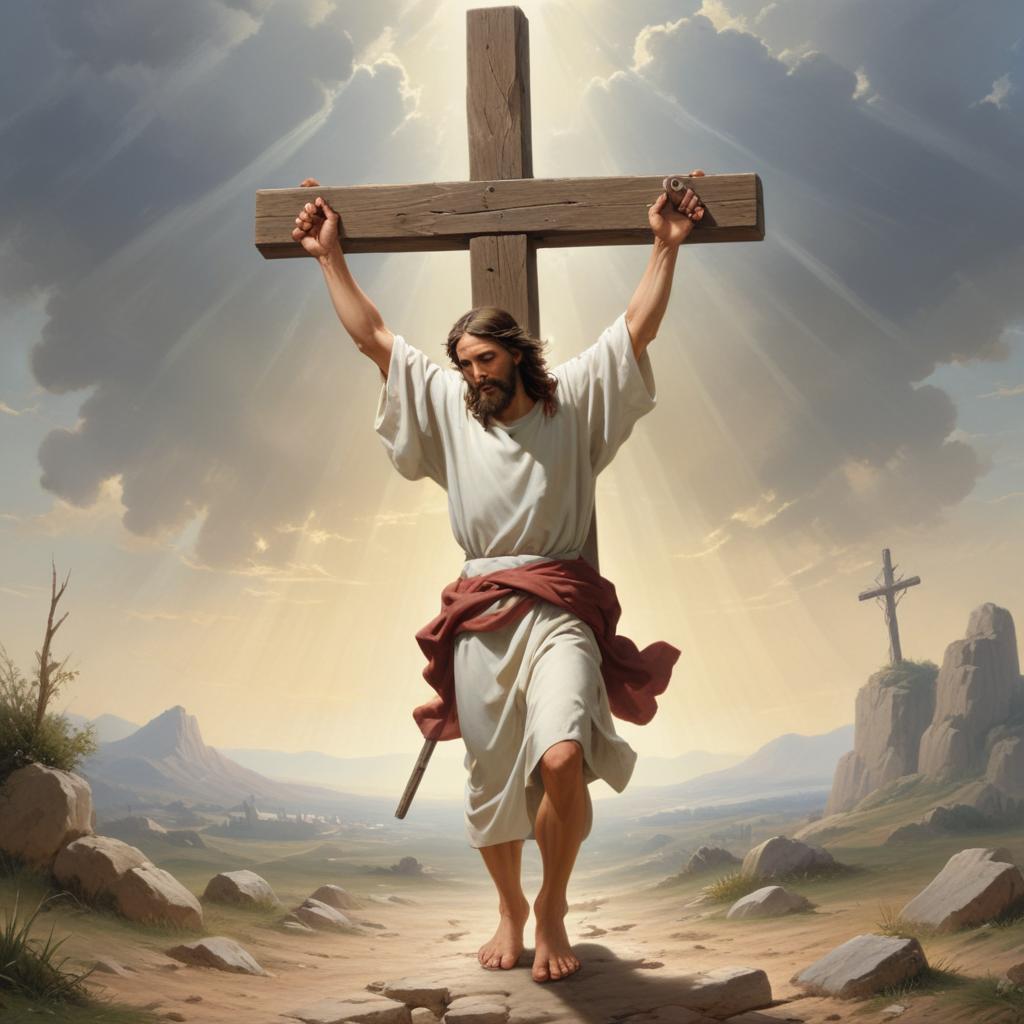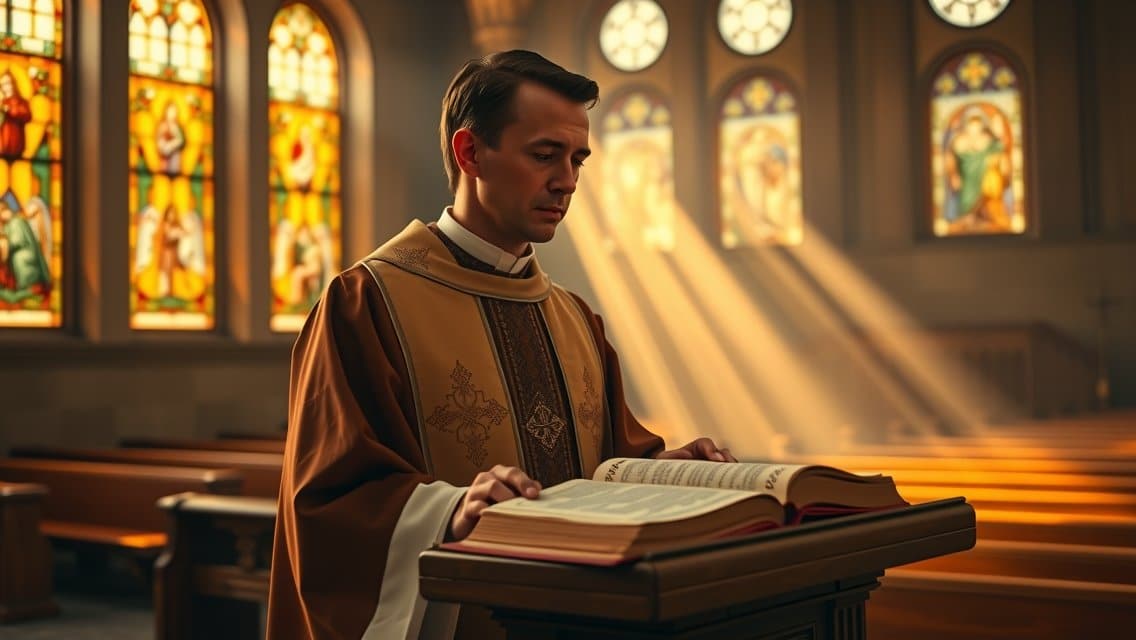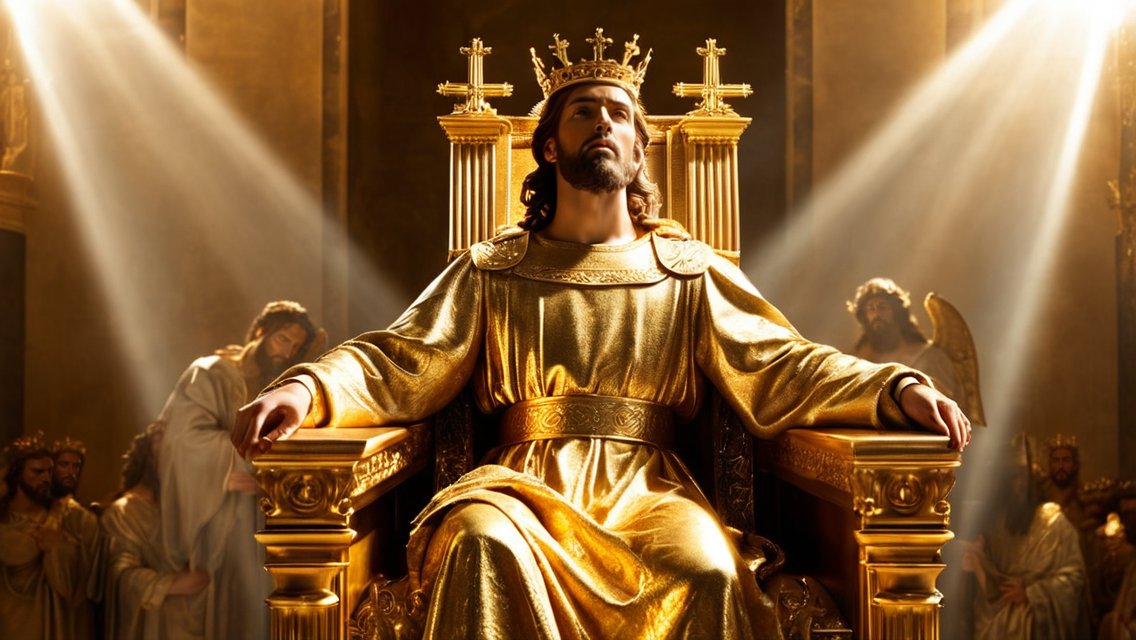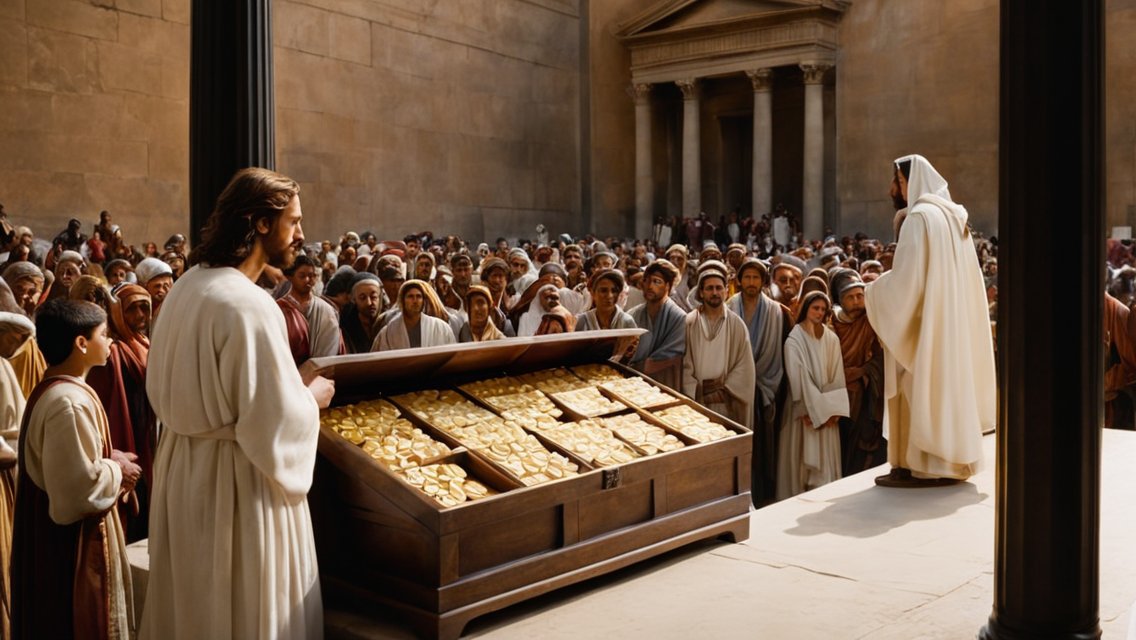Twenty-fourth Sunday Homily of the Ordinary Time – Year B
Readings: lsa 50:5-9, James 2:14-18, 21-22, 27, Mk 8:27-35
1st Reading – Isaiah 50:5-9A
5 The Lord GOD opens my ear that I may hear; and I have not rebelled, have not turned back.
6 I gave my back to those who beat me, my cheeks to those who plucked my beard; my face I did not shield from buffets and spitting.
7 The Lord GOD is my help, therefore I am not disgraced; I have set my face like flint, knowing that I shall not be put to shame.
8 He is near who upholds my right; if anyone wishes to oppose me, let us appear together. Who disputes my right? Let that man confront me.
9A See, the Lord GOD is my help; who will prove me wrong?
Responsorial Psalm – Psalms 116:1-2, 3-4, 5-6, 8-9
R. (9) I will walk before the Lord, in the land of the living.
or:
R. Alleluia.
1 I love the LORD because he has heard
my voice in supplication,
2 because he has inclined his ear to me
the day I called.
R. I will walk before the Lord, in the land of the living.
or:
R. Alleluia.
3 The cords of death encompassed me;
the snares of the netherworld seized upon me;
4 I fell into distress and sorrow,
and I called upon the name of the LORD,
“O LORD, save my life!”
R. I will walk before the Lord, in the land of the living.
or:
R. Alleluia.
5 Gracious is the LORD and just;
yes, our God is merciful.
6 The LORD keeps the little ones;
I was brought low, and he saved me.
R. I will walk before the Lord, in the land of the living.
or:
R. Alleluia.
8 For he has freed my soul from death,
my eyes from tears, my feet from stumbling.
9 I shall walk before the Lord
in the land of the living.
R. I will walk before the Lord, in the land of the living.
or:
R. Alleluia.
2nd Reading – James 2:14-18
14 What good is it, my brothers and sisters, if someone says he has faith but does not have works? Can that faith save him?
15 If a brother or sister has nothing to wear and has no food for the day,
17 and one of you says to them, “Go in peace, keep warm, and eat well, ” but you do not give them the necessities of the body, what good is it? So also faith of itself, if it does not have works, is dead.
18 Indeed someone might say, “You have faith and I have works.” Demonstrate your faith to me without works, and I will demonstrate my faith to you from my works.
Alleluia – Galatians 6:14
R. Alleluia, alleluia.
14 May I never boast except in the cross of our Lord
through which the world has been crucified to me and I to the world.
R. Alleluia, alleluia.
Gospel – Mark 8:27-35
27 Jesus and his disciples set out for the villages of Caesarea Philippi. Along the way he asked his disciples, “Who do people say that I am?”
28 They said in reply, “John the Baptist, others Elijah, still others one of the prophets.”
29 And he asked them, “But who do you say that I am?” Peter said to him in reply, “You are the Christ.”
30 Then he warned them not to tell anyone about him.
31 He began to teach them that the Son of Man must suffer greatly and be rejected by the elders, the chief priests, and the scribes, and be killed, and rise after three days.
32 He spoke this openly. Then Peter took him aside and began to rebuke him.
33 At this he turned around and, looking at his disciples, rebuked Peter and said, “Get behind me, Satan. You are thinking not as God does, but as human beings do.”
34 He summoned the crowd with his disciples and said to them, “Whoever wishes to come after me must deny himself, take up his cross, and follow me.
35 For whoever wishes to save his life will lose it, but whoever loses his life for my sake and that of the gospel will save it.”
Moral Story for 24th Homily, Year B
The Power of Selfless Sacrifice
There was once a farmer who lived in a small village. Despite his meager means, he was known for his generosity. One year, a severe drought struck, leaving many families without food. The farmer, who had barely enough to feed his own family, decided to share his remaining crops with his neighbors. Read …
Homily
Peter: Saint or Satan?
“Get behind me, Satan! Because the way you
think is not God’s way but man’s” (Mk)
“Get behind me, Satan!” If anyone unfamiliar with the Gospel reads these words, one will scarcely believe that: (3) these are Jesus’ words; (b) they are used for Peter, Jesus’ dearest disciple. How is it possible that Mark records a very embarrassing title, ‘Satan’, for one whom Jesus chose as Rock and Head of his Church? Evidently, Mark couldn’t have invented the Satan saying; Jesus must’ve certainly called Peter ‘Satan’. Why?
Like any other Jew of his time, Peter waited expectantly for the advent of the Messiah, who, according to prophesies, would usher in a new era of peace and prosperity. Different groups had diverse expectations of what the Messiah would be like. Thus, the Pharisees expected the Messiah to be a ‘New Moses’ making the Law more stringent, while the zealots wanted him to overthrow the Romans and build a powerful kingdom. Jesus was different.
Mark tells his readers that Jesus is the Messiah, but not a populist one swept by the whims and fancies of the masses. Jesus’ Messianic mission is all about selfless service and sacrificial love. This is powerfully prophesied in the first reading from the so-called ‘Third Song of the Suffering Servant’. It describes a godly person who willingly takes upon himself the guilt of his people so that he can suffer for them: “I offered my back to those who struck me, my cheeks to those who tore at my beard.”
Written between 587 and 528 BC, when the people are suffering in exile because of their sins, the ‘suffering servant’ passage brings consolation amidst desolation. People longingly look for that day when their sins will be expiated and God will lead them home. The servant suffers neither because suffering is good nor because he is a masochist. But, he is ready to sacrifice himself and suffer out of deep love for God and his people.
Enter Jesus, and he is acclaimed as King and Messiah because of his words and wonders. Everyone wants him to perform magic, multiply bread, heal lepers, raise the dead and grab political power. Although Jesus feeds the hungry and heals the broken, he eschews violent nationalism and political power. He seeks to promote Life, and this is only possible if one is willing to serve and sacrifice – even unto death.
Peter symbolizes you and me. We know Jesus. Despite Dan Brown’s ‘Da Vinci Code’ portraying Jesus as Mary Magdalene’s husband and, Hugh Schonfield’s “The Passover Plot’ telling us that Jesus was merely sedated on the cross and did not die, we will declare: “Jesus, you are the Christ!” But, what happens when suffering swamps us and Jesus invites us to follow in his footsteps? This is probably when the Satan in us entices us to pursue pleasure and seek self-gratification, not self-renunciation
“If anyone wants to be a follower of mine, renounce yourself, take up your cross and follows me!” says Jesus, adding, “For if you want to save your life, you will lose it.” Peter’s initial satanic impulse turns into ultimate saintliness when he declares, “Lord, you know that I love you!” (in 21:15). Peter will, eventually, follow Jesus faithfully and be crucified, upside down.
Our cress can come in the form of old age, an interminable disease, death, failure in exams, an intolerable spouse, addiction, loneliness and lack of meaning in life. Such situations demand self-renunciation, selfless service, and sacrificial love. I remember many friends and others who have carried crosses courageously: 10-year old Priyanka who died of bone cancer in Chennai; and Gitanjaii, aged 16, who died leaving a lovely legacy of poems. She writes: “I have a life-threatening disease, but it’s not going to interfere with my life, until it kills me. I am no doubt scared, I’m scared to death. But, I’m not going to sit down and brood about what may or may not happen. What is important in my life is life.”





